Gosh, I still cringe thinking about my first visit to a French bakery.
The air smelled like butter and caramelized sugar.
I pointed at the case, wide-eyed, and said, “One croissant, please.” The baker smiled and said, “Bonjour.”
I repeated my order. She said “Bonjour” again, sharper this time.
It clicked. I mumbled a sheepish “Bonjour,” and the whole interaction flowed.
That tiny moment taught me the best lesson about France: small cultural habits matter.
Do them, and your trip feels smoother. Skip them, and you miss chances for real connection.
I put together this guide on the 10 tourist mistakes people make in France, and how to avoid them.
Contents
- 1 Mistake #1: The Silent Entry (Forgetting “Bonjour”)
- 2 Mistake #2: The Tipping Tangle (Misunderstanding “Service Compris”)
- 3 Mistake #3: The Restaurant Rush (Ignoring Dining Etiquette)
- 4 Mistake #4: The Sunday Surprise (Not Planning for Closures)
- 5 Mistake #5: The Produce Poke (Market Manners)
- 6 Mistake #6: The Ticket Trap (Not Validating Your Metro Pass)
- 7 Mistake #7: The Last-Minute Scramble (Booking Trains Too Late)
- 8 Mistake #8: The Language Assumption (And the “Tu” vs. “Vous” Tumble)
- 9 Mistake #9: The Paris-Only Prism (Ignoring the Rest of France)
- 10 Mistake #10: The Marathon Tour (Trying to See It All)
- 11 Au Revoir
Mistake #1: The Silent Entry (Forgetting “Bonjour”)
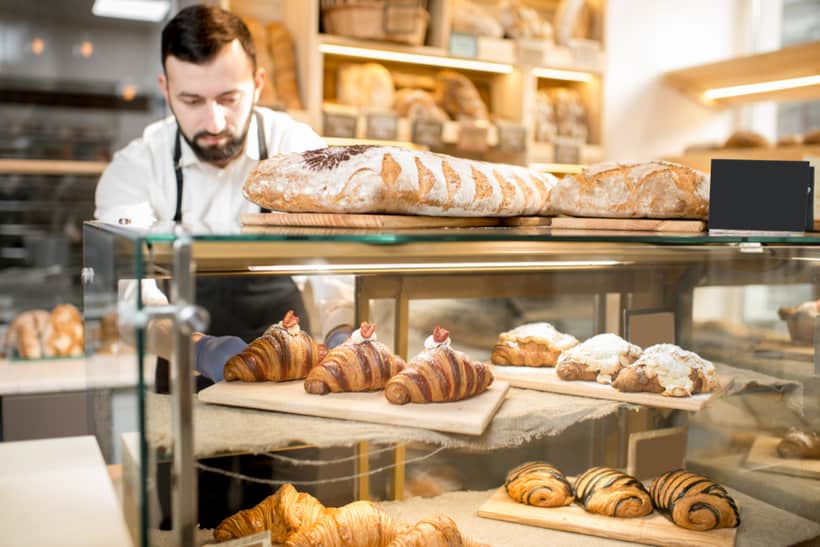
The single most common error is walking into a shop, café, or elevator and starting a conversation without a greeting.
In many cultures, we might launch right into a question. In France, this is seen as incredibly rude.
The word Bonjour is not just a “hello”, but a polite acknowledgment that you are entering someone’s space and wish to interact.
Without it, you’re an intruder. With it, you’re a welcome guest. I’ve seen shopkeepers pointingly ignore tourists until they offer a proper greeting.
How to Avoid It
Make Bonjour, Madame or Bonjour, Monsieur the first words out of your mouth. Say it when you enter a store, before you ask for directions, and when you step into a doctor’s waiting room.
This one word will fundamentally change your interactions while visiting France. It is not an invitation for a long chat, but a required courtesy that opens the door to a pleasant exchange.
Mistake #2: The Tipping Tangle (Misunderstanding “Service Compris”)
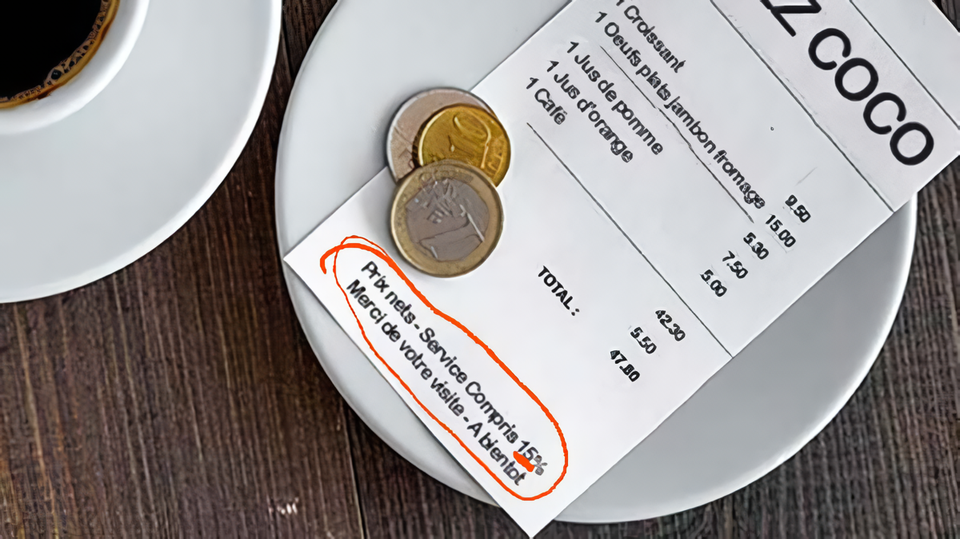
Many American tourists are accustomed to tipping 15-20% at restaurants. Applying this habit in France is a classic mistake.
You will often see the words service compris on your bill. This means a 15% service charge is already included in the prices by law.
French service staff receive a full salary and benefits. They do not rely on tips to make a living, which is a major difference from the system in the United States.
A tip, or pourboire (literally “for a drink”), is a small, extra gesture to show appreciation for excellent service, not a requirement.
In fact, leaving a massive, American-style tip can be seen as a bit flashy or culturally unaware.
Be warned that in some very touristy areas, a waiter might try to convince you that service is not included. Now you know better!
How to Avoid It
Check your bill. If the service was good, simply round up to the nearest euro or leave one or two euros per person on the table in cash. A tip of 5-10% is considered very generous.
Mistake #3: The Restaurant Rush (Ignoring Dining Etiquette)
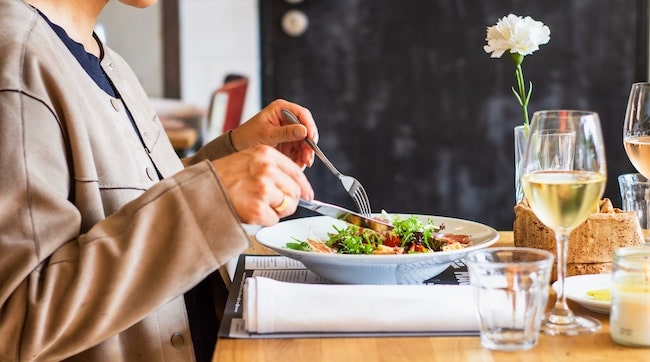
In France, a meal is an event, not a transaction. One of the biggest mistakes tourists make in France is treating it like the latter.
This includes seating yourself without being acknowledged, expecting lightning-fast service, and getting frustrated when the bill doesn’t appear the second you finish your dessert.
The French view the restaurant table as your personal space for the duration of the meal. Rushing you out is considered the height of rudeness.
Therefore, what you might interpret as slow or inattentive service is actually the waiter showing you respect by giving you space to enjoy your experience.
Dining hours are also quite rigid. Most kitchens serve lunch from noon to 2:30 PM and dinner from 8 PM to 10 PM.
How to Avoid It
Embrace the pace. Always wait for the host to seat you. Savor your food and the conversation.
When you are ready to leave, you must ask for the bill. Catch your server’s eye and say, “L’addition, s’il vous plaît,” or make a universal ‘check writing’ gesture in the air.
Mistake #4: The Sunday Surprise (Not Planning for Closures)
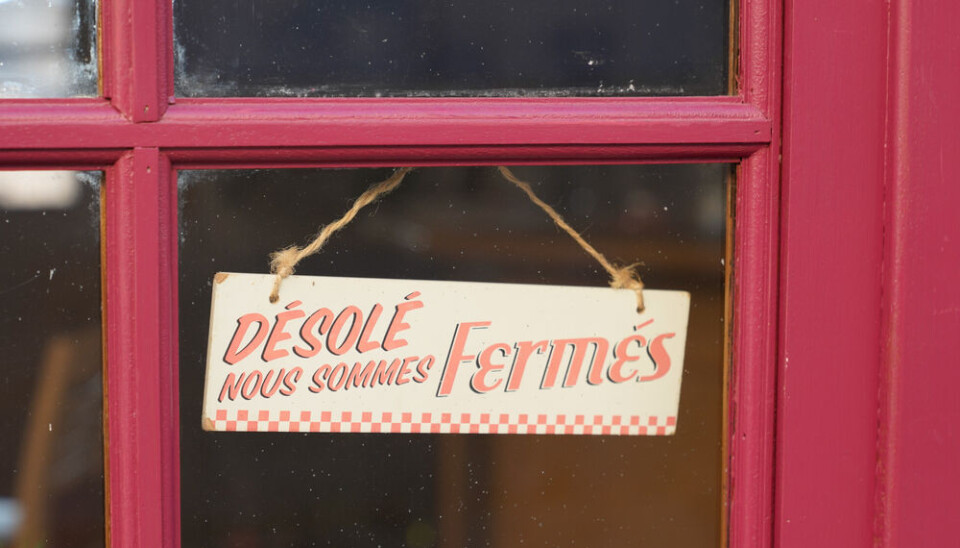
Coming from a culture of 24/7 convenience, many tourists are shocked to find shops, supermarkets, and even pharmacies closed on Sundays. Many also close for a two-hour lunch break, typically from noon until 2 PM, on weekdays.
This is commonplace in French life. The midday meal and the Sunday day of rest are there so that workers can prioritize personal time, family, and leisure over constant commercial availability.
If you find yourself needing medicine on a Sunday, don’t panic. Every pharmacy will have a sign on its door directing you to the nearest on-duty pharmacy, known as the pharmacie de garde.
How to Avoid It
Plan your shopping accordingly. Get your groceries on Saturday and plan a relaxing, non-shopping activity for Sunday. This is one of the most practical French travel tips for ensuring a stress-free trip.
Mistake #5: The Produce Poke (Market Manners)
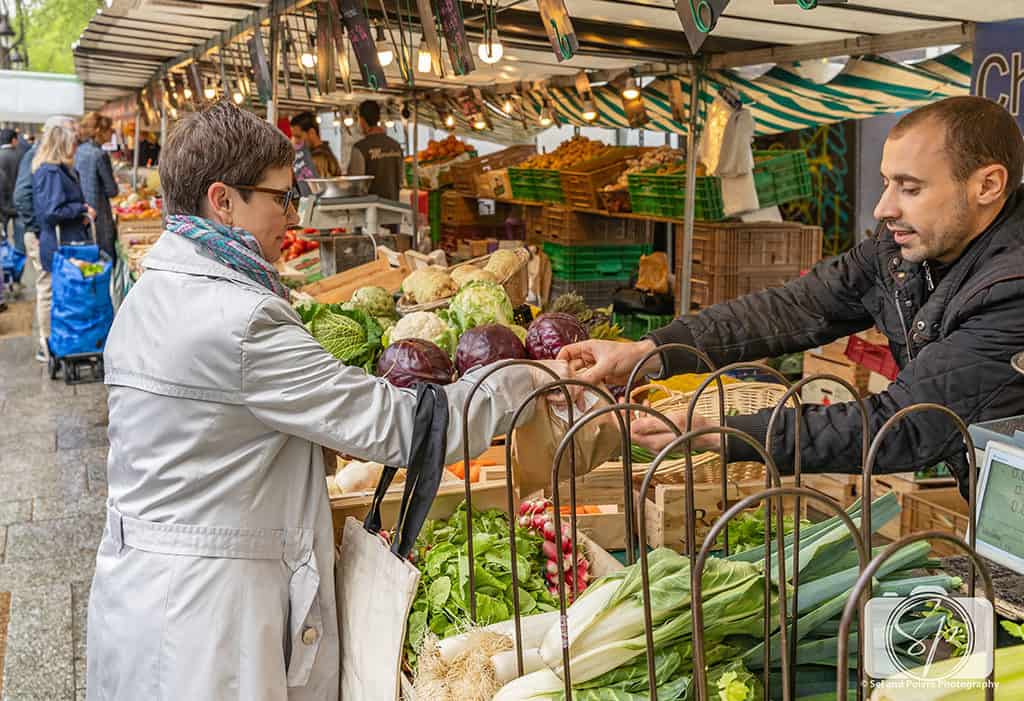
At a bustling French outdoor market, it’s tempting to pick up and inspect the vibrant fruits and vegetables. Please don’t do it.
Unlike in a supermarket, touching the produce yourself is a major faux pas. The vendor takes pride in their products and is the expert.
At a market stall, the vendor is there to serve you. By touching the produce, you are implying you don’t trust their judgment, which is seen as disrespectful.
The correct approach is to engage with them. They will select the best items for you, and their choice will almost certainly be better than yours.
How to Avoid It
Keep your hands to yourself. Greet the vendor with a smile and a “Bonjour.” Point to what you would like and tell them how much you need.
A great tip is to let them know when you plan to eat it. Saying “pour manger aujourd’hui” (to eat today) will ensure you get a perfectly ripe avocado, not one that will be ready in three days.
Must Read: 10 Rookie Mistakes Tourists Make in Italy (And how to Avoid Them)
Mistake #6: The Ticket Trap (Not Validating Your Metro Pass)

You’ve successfully navigated the ticket machine and have your Metro pass in hand. You breeze through the turnstile when it opens for the person ahead of you.
This is a costly mistake. In the Paris public transit system, you must validate your ticket for every single journey.
Validation timestamps your ticket, proving you have paid for that specific ride. Transit police conduct frequent inspections, and they have no sympathy for tourists who plead ignorance.
To them, an unvalidated ticket is the same as no ticket at all, and it is treated as intentional fare evasion. The fines are steep and must be paid on the spot.
How to Avoid It
Every time you enter a Metro or RER station, insert your paper ticket into the slot on the turnstile or tap your Navigo pass on the purple sensor.
On buses and trams, validate your ticket in the small machines onboard. Always keep your validated ticket until you have exited the system.
This is one of the mistakes tourists make in France that is 100% avoidable.
Mistake #7: The Last-Minute Scramble (Booking Trains Too Late)

If you plan to travel between major cities, like from Paris to Nice, waiting to book your TGV (high-speed train) ticket is a recipe for budget disaster.
Unlike regional TER trains, which have fixed prices, TGV trains use a dynamic pricing model just like airlines.
The cheapest tickets are released when booking opens, which is typically four months in advance for TGV INOUI trains. As the departure date gets closer, the prices climb dramatically.
A ticket that might have cost you 30 euros could easily cost over 100 euros if you buy it the week of travel. This is a critical distinction that can save you hundreds of euros.
How to Avoid It
As soon as you know your city-to-city travel dates, book your TGV tickets on the SNCF Connect website or app.
For shorter, regional day trips (like from Avignon to Arles), you can rely on the fixed-price TER trains and buy your tickets on the day of travel without a penalty.
This is one of the best French travel tips for smart travel.
Mistake #8: The Language Assumption (And the “Tu” vs. “Vous” Tumble)
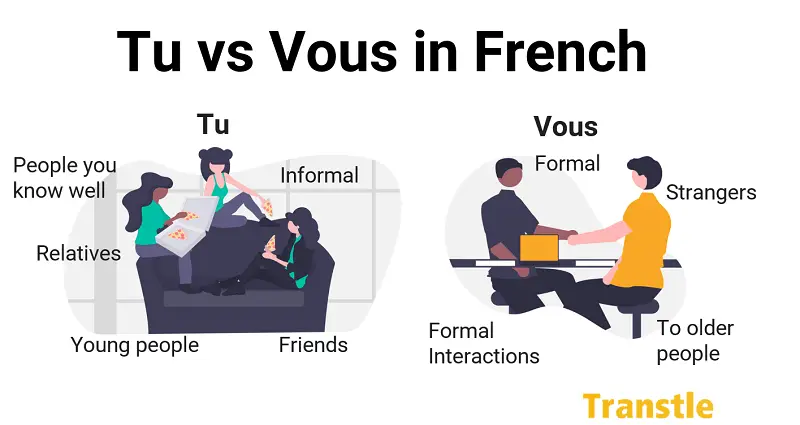
While many people in major tourist areas speak English, assuming everyone does is a common misstep.
More subtle, and perhaps more important, is the distinction between the formal “you” (vous) and the informal “you” (tu).
Using tu with a stranger, a shopkeeper, or anyone older than you can be perceived as overly familiar and even disrespectful.
The French are proud of their language, and a small effort to speak it is greatly appreciated. The choice between tu and vous is a key part of this linguistic respect.
Vous is the safe, polite default for all interactions with people you don’t know well.
The cultural sequence is vital: a greeting, followed by a polite inquiry in French, opens the door for a helpful response, even in English.
How to Avoid It
Always start with vous. When visiting France, this is your default setting.
The best way to ask for help is to start with “Bonjour, Monsieur/Madame. Excusez-moi, parlez-vous anglais?” (Hello, Sir/Ma’am. Excuse me, do you speak English?).
This polite sequence shows respect and is far more effective than simply asking, “Do you speak English?”
This is one of the mistakes tourists make in France that can completely change the way locals respond to you.
Mistake #9: The Paris-Only Prism (Ignoring the Rest of France)
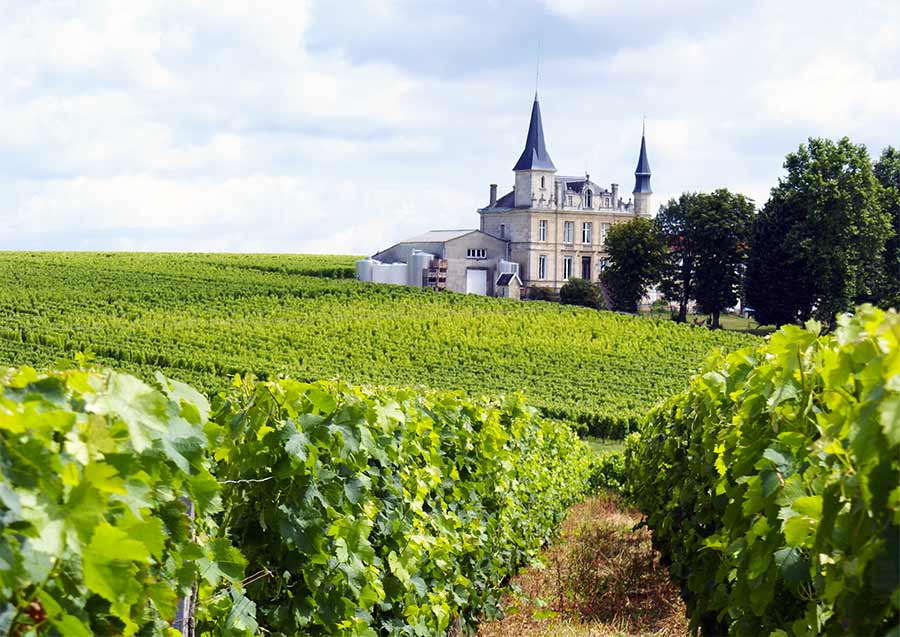
I adore Paris. It’s one of the world’s greatest cities.
But spending your entire trip there and thinking you’ve seen “France” is like visiting New York City and saying you’ve seen America.
France is a mosaic of incredibly diverse regions, each with its own unique identity, cuisine, architecture, and even climate.
From the dramatic cliffs and somber history of Normandy to the sun-drenched lavender fields of Provence, from the fairy-tale villages of Alsace to the vineyards of Bordeaux, the country’s variety is its greatest strength.
To really understand France, you need to experience its concept of terroir: the idea that each place has a unique character that shapes everything from its wine to its people.
How to Avoid It
Get out of the capital! Even on a short trip, you can pair a few days in Paris with a quick TGV ride to another region.
Experience the culinary wonders of Lyon, explore the magnificent châteaux of the Loire Valley, or relax on the beaches of the French Riviera.
Visiting France is about appreciating its rich tapestry.
Mistake #10: The Marathon Tour (Trying to See It All)
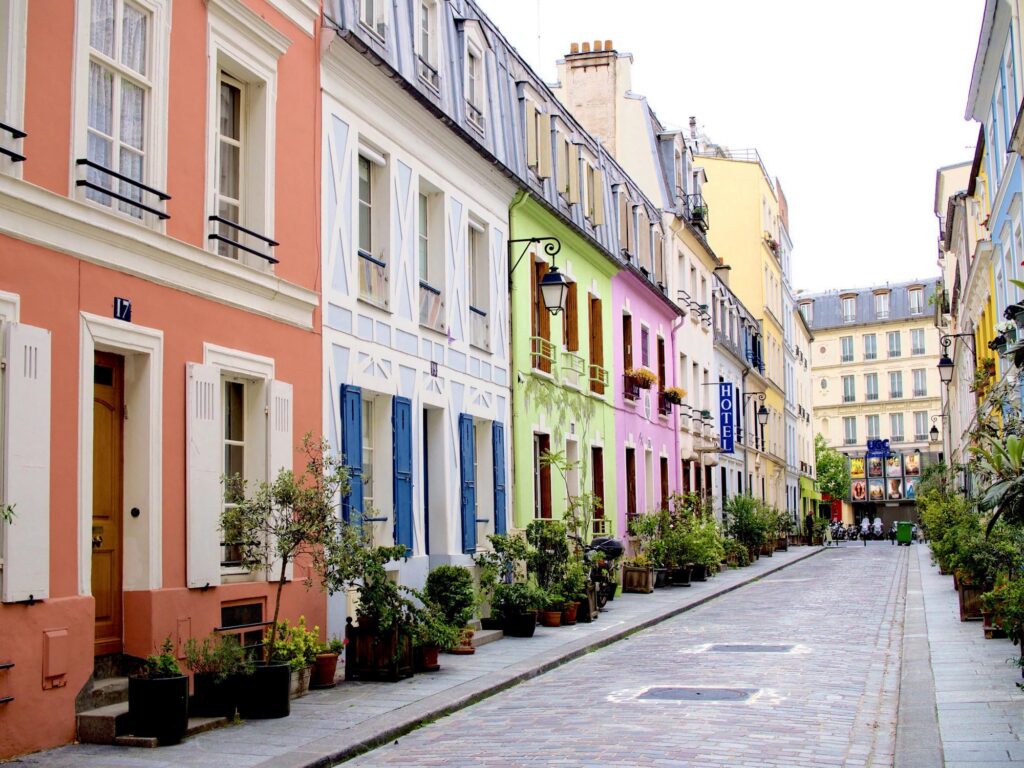
The final, and perhaps most significant, of the mistakes tourists make in France is over-scheduling.
A frantic, museum-a-minute itinerary is the fastest way to burn out and miss the entire point of being there.
The French cherish the art de vivre—the art of living well. This means savoring moments, not just checking boxes.
Slow travel is more rewarding: you get to build empty time into your schedule for spontaneous discoveries. It allows you to participate in the local rhythm rather than just observing it from a tour bus window.
Some of my most cherished travel memories are from unplanned afternoons spent sitting at a sidewalk café, just watching the world go by.
How to Avoid It
Plan less to experience more. Pick one major sight for the morning and one for the afternoon.
Let the hours in between be for wandering, getting lost in a charming neighborhood, or enjoying a long, leisurely lunch.
When visiting France, the goal isn’t just to see things; it’s to feel a different, more relaxed way of life.
Au Revoir
Navigating a new culture is part of the joy of travel. Avoiding these common mistakes tourists make in France is opening yourself up to a more authentic, respectful, and deeply rewarding journey.
By being polite, patient, and prepared, you’ll do more than just see France; you’ll get to experience it.
Now that you have these French travel tips, you’re ready for an amazing trip. What other advice would you add? Share your thoughts in the comments below!